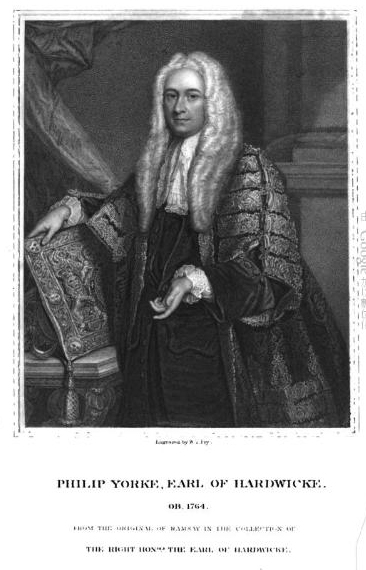The latest New Law Journal includes a story with some interest for legal historians, discussing the re-naming of a set of barristers’ chambers – from ‘Hardwicke Chambers’ (after Philip Yorke, Lord Hardwicke, 1690-1764) to ‘Gatehouse Chambers’, with the heading ‘Rebranding the past―when historical ideals fall short of modern values’.
In the aftermath of the Black Lives Matter protests and (in a Bristol context) the toppling of the Colston statue, no doubt many professions and businesses are considering their overt and more subtle links with the offences of the past. One of the things which strikes me about much of the discussion around this issue of commemoration is the fact that it often falls into a binary – ‘the past’ and ‘modern times’. As many good studies of the Colston issue (not to mention US Confederate statues) have shown, however, there is often a rather more complex timeline than that. with an important stage between the life of the now-controversial character and the present day, an era in which there was a move to highlight, or make use of, a figure of the past. Thus, the Colston statue was put up not in the old slaver’s own day, but in the heyday of Victorian imperialism. In a sense, naming modern legal institutions after ‘great legal men’ of the past has something in common with this tendency. The NLJ article more or less makes this point. The attempt to dredge up some historical figure to associate with one’s present day enterprise is both unimaginative and questionable. There is always the chance that the historical figure will turn out to have said or done something dubious, and there is also the issue of whether it is fair to borrow the image of people from the past without their approval – see also the feeble nonsense of ‘Nightingale Hospitals’ and ‘Nightingale Courts’ (at one point it was suggested that these might be called ‘Blackstoen Courts’ too …). Apart from anything else, it all tends to reinforce the ‘great men and the occasional carefully selected great woman’ view of history. Let’s just not, eh?
Though the article was not what I feared, on seeing the title, (was steeling myself for something along the lines of ‘political woke virtue correctness gone mad signalling TM Daily Mail’) it does have its faults. It is irksome to see a certain lack of concern about the contemporary correctness of the objectionable Talbot-Yorke opinion, and there are some inappropriate choices of language here – it would be wise to avoid ‘slaves’ and ‘slavery’, which are now rapidly falling into disuse, amongst people who see their effect in rendering matter-of fact the subjugation of certain sections of humanity. In addition, in the context of the enslavement of Africans, discussing ‘branding’ – the marking of livestock, or people, as chattels, by the imposition of hot metal, is, surely, well beyond infelicitous.
GS
17/7/2021
Image: the ‘great man’ himself, c/o Wikimedia Commons.
